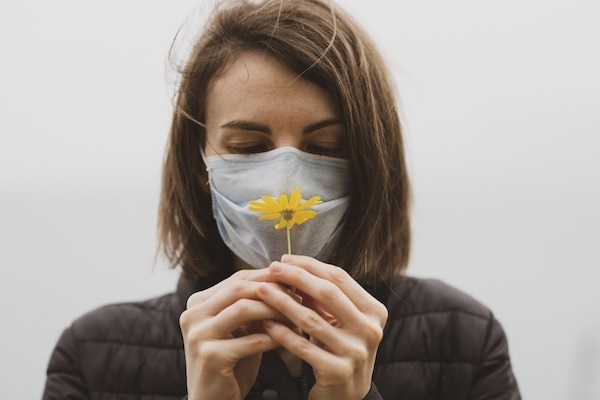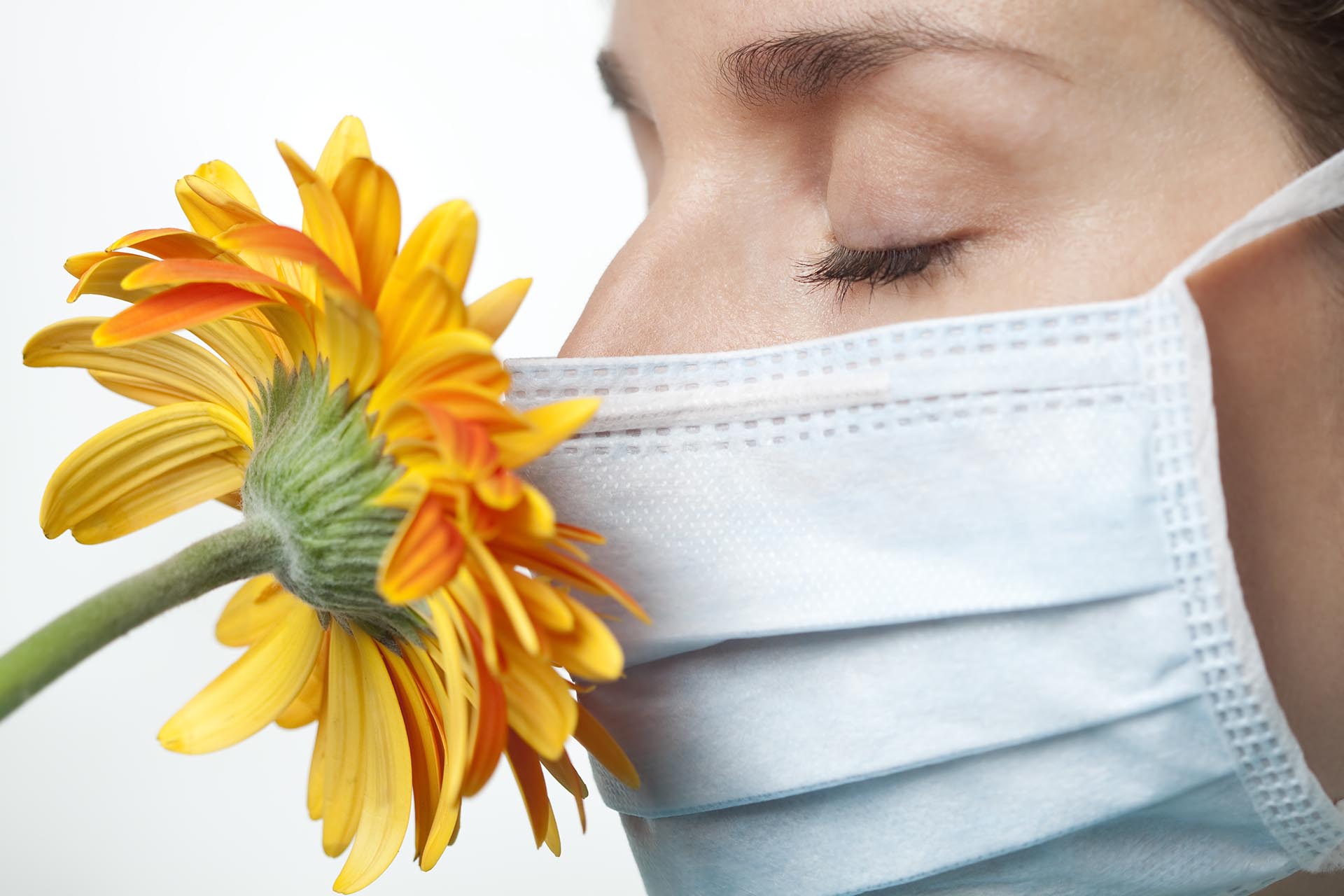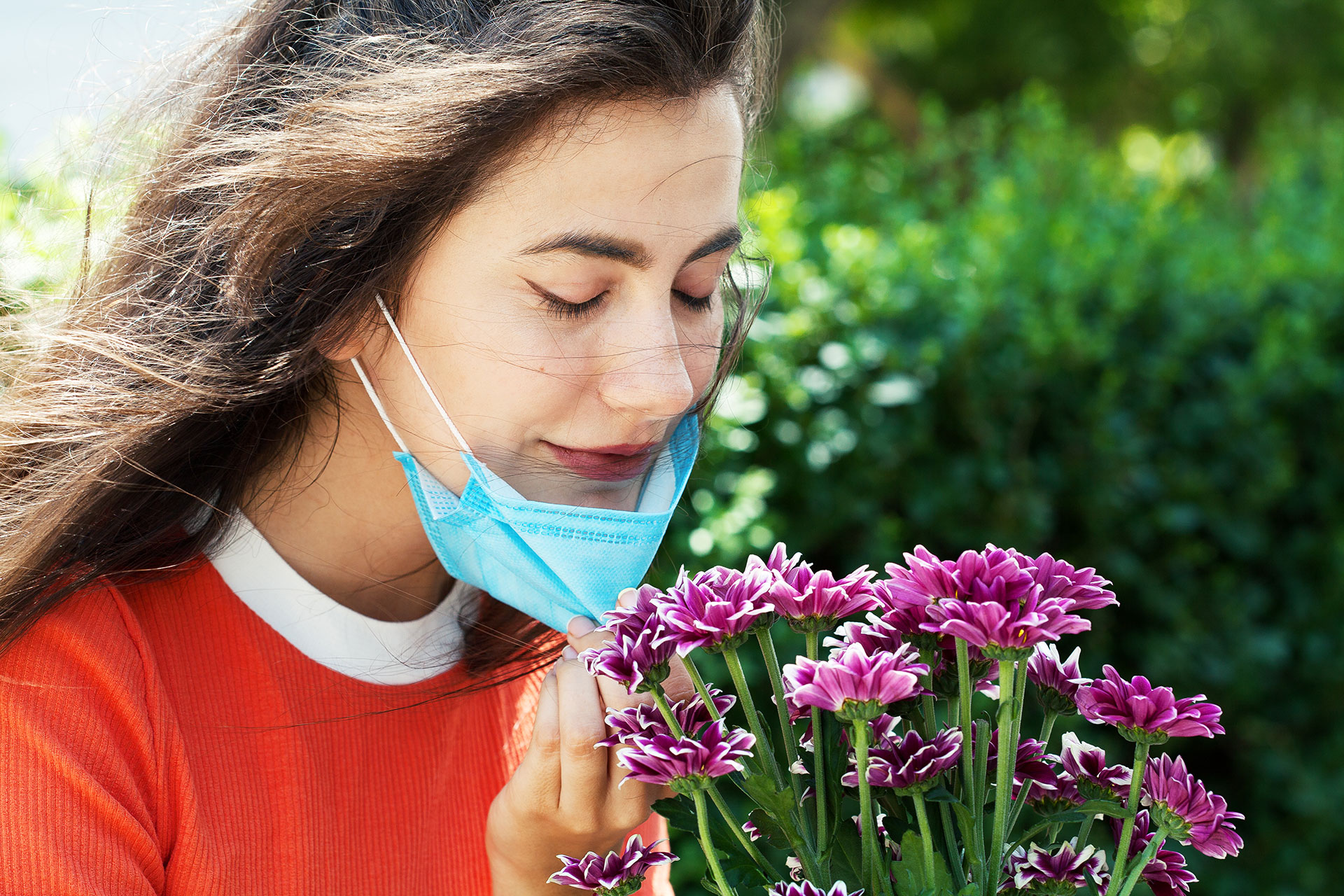
The sense of smell may be considered by some to be primitive. But it is the nose that alerts us to many situations: from a tasty meal nearby to danger, for example, when perceiving smoke. However, these smells were not always the same. Even more so when COVID put this sense in check by causing thousands to lose it when infected. Two experts spoke with Infobae about the past, present and future of smell in society.
With this in mind, a group of German researchers are analyzing how to reconstruct the “olfactory landscapes of the past” with the aim of “studying past experience, behavior and society”. In short, it seeks to know the ancient rituals, the reality on the battlefields and even the customs inside the homes of yesteryear from a new aspect: the olfactory one.
Those who raised this possibility are scientists from the Max Planck Institute for the Science of Human History, in Germany; who published a study in the journal Nature Human Behaviour, where they pointed out the importance of reconstructing and rescuing the odors of yesteryear. Barbara Huber, lead author of the study, stated that knowing these olfactory records “can provide insight into many aspects of the past, including rituals, perfumery, hygiene, cooking and commerce.”

According to Huber, they will learn about these smells “using traces of perfumed substances preserved in archaeological artifacts and elements”, and study them thanks to new and powerful biomolecular and omic approaches, such as proteomics and metabolomics techniques. Then link the resulting data with information contained in ancient texts, images, and archaeological and environmental records.
Scientists seek to unravel the “olfactory landscapes” of yesteryear and learn what the sensory world of the past was like and how it evolved to the present day. “Novel methods are revealing the powerful smells that were a cardinal feature of ancient lived realities, and that shaped human action, thoughts, emotions and memories,” Huber said.
With the pandemic, the absence of the sense of smell as a result of COVID showed that this sense marked, and still does, humanity. But how important it is and what can it tell us, not only about these years when SARS-CoV-2 was the protagonist, but also about the future. Two experts spoke with Infobae and explained the relevance of this sensory world.

It seems easy to talk about smell. Smells surround us since we are born. But there are no teachers to recognize them, only instinct.
“Smells provide information, but no one gives us education about them unlike colors, for example. One gives it an adjective and how they are related to certain situations, places or people remain in our memory”, Dr. Stella Maris Cuevas (MN: 81701), an otolaryngologist, expert in smell and allergist, explained to Infobae.
The former president of the Otolaryngology Association of the City of Buenos Aires (AOCBA) stressed that, although it has ruled the world since time immemorial, this sense was underestimated. “Ancient men knew what was going on around them through the sense of smell, but with seasonal illnesses, such as the flu, humans began to rise and importance was given to the other senses, such as sight and hearing. Thus smell began to be relegated and considered practically as a younger brother.”
In the words of Patricia Portillo Mazal (MN: 117,216), an otolaryngologist and specialist in smell and taste at the Italian Hospital in Buenos Aires, “smells are present from the basics, such as warning us of danger or food in poor condition, to human relations. A baby already in the womb perceives the smells of its mother and when it is born it looks for it precisely through the smell, but it is also with family, friends, a partner and we even recognize ourselves by the smell”.

Both experts emphasize that this sense, which we learn almost naturally, is rooted in memory. A scent, for example, can allow for a vivid memory. Whether it's one from food prepared with care and affection, a landscape or an experience to painful or distressing situations. A single olfactory stimulus allows the human to remember what he had forgotten.
“Smells have a lot of the emotional connotation, whether we like it or not, a smell is also related to culture, to different eras and even to different cultures. So, part of us liking certain things is related to what we know and become familiar with,” said Portillo Mazal.
In this sense, Cuevas exemplified: “The smells of the last century often bring you a memory of dirt. Since there was no water or sewers, people didn't bathe like they do today, everyone had to share the same water and tub. As they were very patriarchal societies and large families, first the head of the family bathed and the last member, obviously, bathed in dirty water.”

The loss of smell caused by COVID in thousands of people put this sense back at the center of the scene. And if I may digress, the handwashing that is undisputed today suffered something similar almost 200 years ago. In 1847, Ignaz Philipp Semmelweis, a Hungarian doctor now known as “the savior of mothers”, was labeled “crazy”.
This doctor demonstrated that washing hands before attending women in labor at the obstetric hospital in Vienna, where he worked, led to a drastic decrease in puerperal fever figures, as it prevented the death of mothers and newborns. His proposal was reviled and was singled out as a “charlatan”. He was dismissed and years later ended up in a psychiatric hospital, where he died in 1865, at the age of 47.
The story of this doctor, who in a few words also contributed to the pandemic morigerating, could well be related to the sense of smell. Denoted for years, until history brought him to center stage.
“Since there were many people who lost their sense of smell and, in addition, this lasted a long time, it was given another value. Many people say today that they didn't know how important it was until they lost it, because it has been relegated during these decades. I think, in a way, it is to give it the importance and meaning again. It's realizing how many things we use it for,” Portillo Mazal said.

At the same time, he warned that the second point relates to those who, after recovering it, suffer distortions. “That smell is not as I know it and realizing that it cannot come or that other information arrives, as with parosmia, is important. Beyond the fact that humans, in and of themselves, lost the subject of smell a little compared to animals, smells were covered up and natural smells were relegated,” said the specialist from the Italian Hospital.
“The sense of smell, which was completely relegated even by the otolaryngologists themselves, became the protagonist. It is a sense that is in the nose and occupies only 2.5 to 5 cubic centimeters in humans, but it represents 20 to 30 million olfactory cells. When the patient went to the office and the doctor asked him how he breathes, but never how he smells,” Cuevas reflected.
According to the author of “The fascinating experience of smelling”, this “sense is so complex that, directly, it was easier to ignore it. Today, with COVID, people use a narrative so detailed that it is engaging. One thought they were invisible, but smells are everywhere. Now, people who go through the long COVID live with this sense exacerbated or suffer from distortions.”

COVID highlighted the importance of this sense. Its absence, distortions or, well, its exacerbation demonstrated how necessary it is for humanity. Today, science wants to know what the olfactory landscape of the past was, but what can our nose tell us about what may happen in the future.
Both experts point out that the consequences of the pandemic on thousands of people around the world pose a future that will need to be addressed from several angles. Not only from medical science, but also from social science.
“Smells can speak of development, changes, traditions. At this time, in some cultures such as ours, for example, we seek to cover our natural smells with artificial ones, such as perfumes with intense essences. But there, the lack of smell, or not, of this time can tell us we are still in that towards the future or if, at some point, we will see a little vindication of our smells again,” said Portillo Mazal.
And Cuevas concluded: “Perhaps, in a very short time, we will have to talk about odor pollution. The aftermath of COVID generates many discomforts in people. In the world we were very few specialists, because there is no sub-specialty. Now colleagues are forced to study about smell, because people need it. In fact, nearly 1,600,000 people in the United States have had olfactory alterations and more than 700,000 have not yet recovered their sense of smell, so it is believed that it will be a public health problem.”
KEEP READING:
